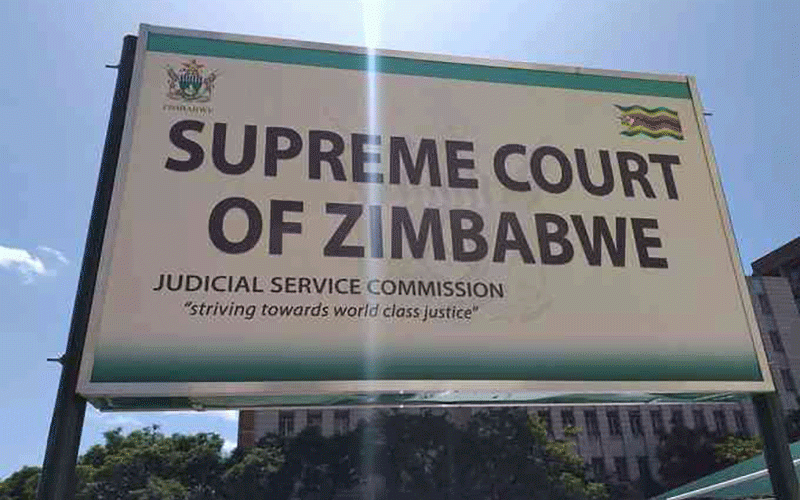
THE Supreme Court has dismissed a US$10 million lawsuit filed by local company Zemqos Incorporated (Pvt) Ltd against City Parking over an alleged violation of a verbal agreement for the supply and installation of an automated parking management system in Harare.
In the application, that was heard by the Supreme Court bench consisting of Justices Chinembiri Bhunu, George Chiweshe and Joseph Musakwa, the company appealed against a judgment of the High Court which dismissed its claim for specific performance of a verbal contract it had entered into with City Parking.
Zemqos was seeking the setting aside by the Supreme Court of a High Court judgment or alternatively if specific performance is no longer feasible, cancellation of the contract and an award of damages of US$10 660 916,25 for breach of contract.
Zemqos and City Parking in 2014 entered into a verbal agreement after the latter engaged the former for the supply and installation of a fully automated parking management system in the capital.
The company argued that in terms of the agreement, City Parking undertook to allocate 5 000 bays for the installation of a fully automated sensors enabled parking management system.
The installation was to be done in phases, with the contract running for 15 years.
However, Zemqos installed the system on the initial 500 bays and it further supplied 200 hand-held devices.
It further argued that City Parking paid for the initial stage and continued to pay its licence fees for the remaining semi-automated bays until 2017.
- Kenya's top court to rule on disputed presidential election
- More details emerge in Justice Gwaunza saga
- Opinion: Corruption a threat to viability of health systems
- Malunga farm case raises dust
Keep Reading
The company also submitted that, in breach of the agreement, City Parking had neglected, refused and/or failed to allocate the remaining 4 445 bays while using the automated parking system without paying licence fees.
However, City Parking argued that it entered into a verbal agreement with Zemqos which did not honour it fully.
It further denied entering into any agreement regarding the 4 445 bays.
City Parking also raised the special plea of prescription arguing that Zemqos had served summons on January 4, 2021, more than three years after the agreement was cancelled.
The High Court found no evidence to support Zemqos’s claim for breach of contract entitling it to either specific performance or damages.
It also found that all the equipment supplied by Zemqos for the initial 555 bays was fully paid for while the contract was no longer in issue, saying there was no contract to be cancelled or to be specifically performed.
It dismissed the application for lack of merit and also rejected Zemqos assertions that the contract was supposed to run for 15 years on the grounds that no evidence had been adduced to support that contention.
With regards the second phase involving 4 455 bays, the High Court observed that the automation of these bays was conditional upon the availability of funds on the part of City Parking.
The High Court also found that a term of the contract was not fulfilled and, therefore, the contract remained suspended by the non-fulfilment of the condition precedent.
In the result, the High Court dismissed Zemqos’s claim in the main and in the alternative with costs.
However, aggrieved by that decision, Zemqos noted an appeal with the Supreme Court on the grounds that the High Court erred in all its findings and prayed for the setting aside of the whole judgment.
The Supreme Court judges, however, ruled that the High Court exercised its discretion judiciously in dismissing the claim for specific performance and other issues.
“Its terms and conditions were to be ascertained through the testimony of the witnesses who appeared before it. It had the privilege of assessing the witnesses and weighing their evidence. It found the respondent’s witness credible and determined the matter accordingly.
“It found, as a matter of fact, that the performance was subject to availability of funds and that there was no evidence that such funds were available. Such findings cannot be lightly interfered with in the absence of gross irregularity,” the judges ruled.
The judges ruled that the appeal had no merit, adding that he alternative claim for damages was similarly without merit.










